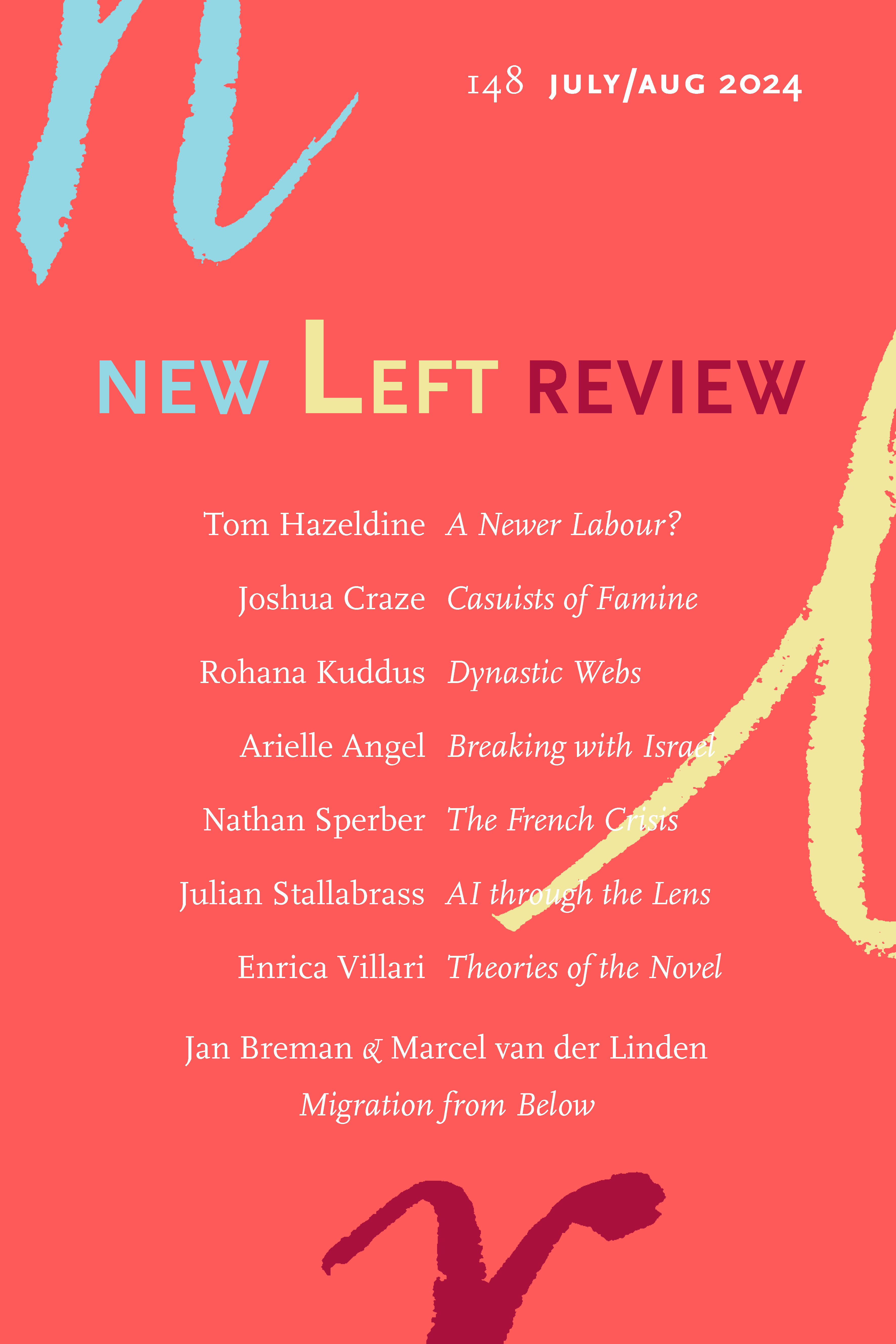Still lagging its G7 peers in recovery from the 2008 crisis, and faced with the impasse of Brexit, Britain is haunted again by the spectre of decline. As Labour returns to office, tight-lipped about its plans, Tom Hazeldine analyses the class character of the vote and the regionally skewed economy that underlies it.
NLR 148•
The rejection of Israel’s hegemony by a new generation of Jewish Americans—and their radical critique of its revenge war on Gaza—have altered the political-intellectual terrain in the US. Arielle Angel, editor in chief at Jewish Currents, discusses the journal’s role in this rupture with the Zionist establishment.
Since 2017, France’s Fifth Republic has been polarized between three novel coalitions—techno-bourgeois, far-right and radical left. After July’s snap elections, as Macron once again pockets the ‘anti-fascist’ vote and installs a conservative Prime Minister, Nathan Sperber argues that a Meloni-style domestication of Le Pen may be on the horizon.
Death by hunger stalks millions in the Sahel and Horn of Africa—the upshot of West-led political and economic processes as much as climate change and war. Yet only a few instances can pass the demanding criteria for famine set by the humanitarian technocrats of the international bodies charged with its alleviation.
How did Prabowo Subianto—former military strongman, with a list of massacres to his name—capture the Indonesian presidency? A comparative analysis of the dynastic political culture that has supplanted traditional left-right divisions across the archipelago, from its emergence under the dictatorship to its consolidation under Jokowi.
What forms of criticism should be brought to bear on the pseudo-realist ‘photographs’ produced by prompts to AI programmes? Julian Stallabrass gets a bead on these thrice-alienated products of human image-making by framing them within information-science concepts of cultural entropy and philosophical considerations on déjà vu.
From Signs Taken for Wonders to The Bourgeois, Franco Moretti has developed a changing, multifaceted sociology of the novel. In this critical reconstruction, Enrica Villari parses the theory that unfolds from his pioneering account of the form’s evolution—through Goethe, Stendhal, Balzac, Eliot, García Márquez—and considers its political implications.
Against both the catastrophist and ‘win-win’ perspectives on immigration, this class-based examination shows that in-country and in-region movement far outstrips the traffic on the ‘migratory corridors’ joining poor countries to rich. Fieldwork from India and Indonesia reveals the social determinants shaping the conditions of departure.
